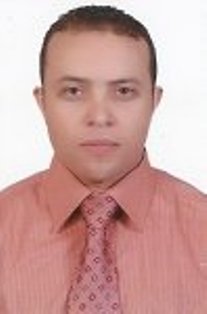Mahmoud A. El-Sayed is an Associate Professor at the department of Industrial and Management Engineering since November 2016. He was graduated from the department of Production Engineering, Alexandria University in 2001 with an overall grade of Very Good with degree of honor, and then joined the department of Industrial and Management Engineering, AASTMT in September 2001 as a teaching assistant. Dr. El-Sayed got his M.Sc. in Industrial Engineering in 2004 and then promoted to an Assistant Lecturer in the department of Industrial and Management Engineering, AASTMT the same year. He has received his Ph.D. in Metallurgy and Materials Engineering from the University of Birmingham, UK in 2012, and promoted to an Assistant Professor the same year. He has over fifteen years of experience in the academic field of Materials and Industrial Engineering since graduation in 2001. During his PhD research work, Mahmoud had investigated the effect of double oxide film defect, a common nonmetallic inclusion in aluminum alloy melts, on the mechanical properties of aluminum castings. In this project, which was partially financed by Rolls Royce, he studied the life cycle of such defect with the intention of developing new casting technique by which such defect might be eliminated, at least deactivated in aluminum alloy castings. He has also spent three months as an honorary research fellow at the School of Mechanical Engineering, University of Birmingham in 2015, where he had contributed in researches investigating the fabrication of micro-medical implants via different techniques such as Selective Laser Melting, Soft Lithography and Capsule-Free Hot Isostatic Pressing. In these researches he had effectively developed manufacturing technologies that emerged the benefits of additive manufacturing techniques and micro-electrical discharge machining to produce metallic micro-implantable devices. The micro-parts produced by different additive manufacturing processes were subsequently surface processed via μ-EDM in order to improve the surface quality. In addition, he conducted another successful project that involved the fabrication of porous bio-compatible materials, with controlled porosity, for medical implants by a combination of cold pressing and capsule-free hot isostatic pressing. The controlled porosity was showed to allow the bone tissue to grow into and through a porous matrix of metal, bonding in this way the implant to the bone host. The results of these researches could be considered as a step towards the development of orthopaedic biomaterials. He has published about 20 papers in ranked journals and international conferences (most of them as the lead author), in addition to one text book that based on my PhD thesis. Dr. El-Sayed is a member of the following professional societies: The Egyptian Engineers Syndicate. The Institute of Industrial Engineers.

